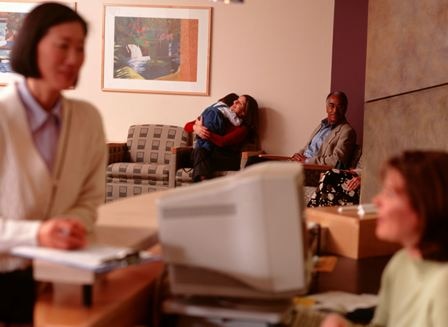
Public and nonprofit facilities received financial assistance under Titles VI and XVI of the Public Health Service Act, commonly known as the Hill-Burton Act. Recipient facilities include:
Every hospital or other facility that ever gave a Community Service Assurance in exchange for Hill-Burton funds under Title VI of the Public Health Service Act must:
- Provide emergency services to any person living in its service area who cannot afford those services
- Give each person living in its service area non-emergency medical treatment at the facility no matter their race, color, national origin, creed, or any other factor unrelated to a person’s ability to pay for a needed service and the facility’s ability to provide the needed service
- Participate in the Medicare and Medicaid programs unless they are ineligible
- Make arrangements for reimbursement for services with principal state and local third-party payers that provide reimbursement that is not less than the actual cost of the services
- Post its community service obligations in English and Spanish, and any other language spoken by 10 percent or more of the households in the service area
- The Hill-Burton Act also applies to people working in the service area of the facility if it was funded under Title XVI of the Public Health Service Act.
- The community service obligation does not require the facility to make non-emergency services available to persons unable to pay for them
A facility’s Community Service Assurance obligations also extend to people working in its service area if the facility received funds under Title XVI of the Public Health Service Act.
Find a Hill-Burton Facility that provides free or reduced-cost health care.
Regulation
42 CFR Part 12, Subpart G (Community Service obligations of Hill-Burton facilities).



